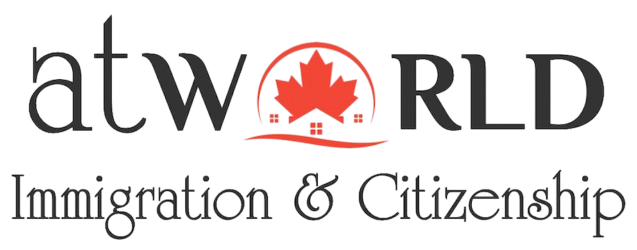

Thousands of people apply for a visitor visa Canada each year to explore the country or meet their loved ones, while some bunch of people among the crowd apply for the same visa hoping to work or study while exploring the country. While the visitor visa is applied for by many people with a lot of confusion, especially around its limitations and possibilities.
This blog is the answer guide for all your questions surrounding the visitor visa. It may be planning for a short trip or taking a study program, or starting a work venture in Canada. Read this blog till the end for important information, experts' tips and realistic expectations.
A Visitor visa Canada is one of the Temporary Resident visas issued by the Canadian government to foreign nationals to stay in Canada temporarily. The Visitor visa can be used for tourism purposes or visiting family members or loved ones in Canada, or attending a business meeting. With this visa, one can stay in Canada legally for up to six months.
It is important visa for the citizens of non-exempt countries to enter Canada or non-permanent reasons for a short duration.
To apply for and acquire a visitor visa for Canada, the applicants should have the following requirements.
The Visitor visas are issued for single-entry or multiple-entry. The multiple-entry visa can be given for a validity period up to 10 years or until the passport expires, but each visit typically allows a stay of up to 6 months and cannot exceed more than that.
The most important point to be noted is, the temporary visitor cannot legally work in Canada under a Visitor Visa. This visa is strictly crafted by the IRCC for visiting purposes and does not give the right for employment purposes.
In August 2024, the IRCC have updated its rules and regulations stating that the visitor visa holders can no longer apply for work permits from within Canada or take up work during their stay as a visitor. Before this update, many foreign nationals used it as a loophole to work under the visitor visa after their arrival.
But rare exceptions do exist; one should get a valid job offer aligning with the Labour Market Impact Assessment (LMIA), but it should not be applied from inside Canada. One should leave for their home country and apply from there on their own or at a designated visa-processing centre.
If one wants to land in job in Canada desperately, it best option is to apply under a temporary work visa Canada through routes like the Temporary Foreign Worker Program.
Further, attempting to get a job and work on a visitor visa can lead to serious repercussions:
The best advice for the applicants or the holder is to stay compliant with the visa and not to risk their future.
In the case of the study, there is a positive note: The holder can take short-term studies, which should be less than 6 months, for a visitor visa. For this category, the holder can opt for Language schools, workshops, or professional development programs. These programs or courses do not require any valid study permit.
In case you want to pursue a program at a university or a longer-term program, you need a Canada study permit. The holder may switch to a study permit from within Canada, unlike the rules for the work permit. But the holder should receive an offer from a Designated Learning Institution (DLI) and also needs to meet all eligibility requirements set by IRCC.
In case you want to pursue a program at a university or a longer-term program, you need a Canada study permit. The holder may switch to a study permit from within Canada, unlike the rules for the work permit. But the holder should receive an offer from a Designated Learning Institution (DLI) and also needs to meet all eligibility requirements set by IRCC.
A visitor visa is a pass given to a foreign national for only for visiting. One cannot work or study in Canada holding a Visitor visa.
Many people believe that they cannot enter Canada with a visitor visa and easily switch to a work or study permit within Canada itself. The reality is different, as the process is difficult without the strong backing of an LMIA or DLI offer. Acquiring those offers are further complicated.
If you want to secure a job or pursue your studies in Canada, listed below are alternatives:
The applicant should apply through Programs like:
These are specifically curated for skilled professionals and allow them to work in Canada legally.
If the student applicant wants to pursue the program longer than 6 months, then they should apply for a Canada student visa from their home country. Approval depends on:
If the applicant has a long-term goal to live and work in Canada, there are options like
If the applicant wants to enter Canada and increase the approval for that application, here are the tips:
If you are applying from India, apply under the Canada visitor visa from India guidelines.
To experience the beauty of Canada, apply for a visitor visa Canada if you are intention is solely to explore or visit your loved one ( you have a spouse visitor visa Canada). If you have other intentions, like studying or working, apply visa under the appropriate category. Seek expert guidance from consultants like Croyez Immigration to increase your chances of approval. And also explore the visas, like Canada tourist visa and apply for Canada tourist visa if you are interested.
Good Luck!

Post a Comment